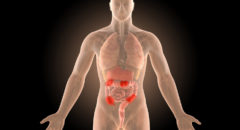
When we're in pain and searching for every remedy under the sun to alleviate the pain, we often forget that the answers to our problems may actually be in our kitchen. Some studies suggest that foods -- ranging from milk to processed meats -- can actually trigger things like migraine headaches and arthritis pain in people who are extra sensitive to them. food allergies
Clinical medicine has long recognized that severe food allergies can trigger acute asthma attacks, skin rashes, and even anaphylactic shock in children and adults. These types of allergies can usually be diagnosed through skin-prick tests and other procedures. But there is another type, often called "hidden" or "masked" food allergy, that has been the subject of controversy within the discipline for decades. These more subtle food sensitivities are extremely difficult to diagnose clinically, to the extent that some doctors doubt their existence at all.
Nevertheless, a substantial body of medical literature documents the fact that certain foods can trigger increased pain among individuals in scientific studies. According to a report in the Alternative Medicine Review, masked food allergies have been linked not only to migraines and arthritis but to asthma, irritable bowel syndrome, eczema, and rhinitis, among other ailments.
Most scientific studies into masked food allergies place patients on an "elimination diet" in which participants eliminate all questionable foods from their diets for anywhere from a few days to several weeks. During this period, participants record how they are feeling when eating none of the possible trigger foods, then while adding each food one by one, noting if any one food seems to worsen their symptoms.
RELATED: 5 Foods That Fight Pain
Avoiding certain foods has been shown to be effective in some studies for the following conditions:
Migraines.
Experts tend to agree that certain foods can trigger migraines in individual sufferers. In fact, headache specialists often encourage their patients to keep headache journals so that they can become aware of their triggers, whether nutritional or environmental.
Which foods trigger migraines?
According to an article in the Cleveland Clinic Journal of Medicine, foods that contain tyramine (a naturally occurring compound formed when the amino acid tyrosine breaks down) are common food triggers for migraines.
These foods include bananas, avocados, aged cheeses, yogurt, sour cream, nuts, chocolate, red wine, processed meats and fish (containing nitrates), food coloring, preservatives, caffeine, alcohol, monosodium glutamate (a flavor enhancer found in Doritos and often in Chinese food), and artificial sweeteners. Other studies have found that wheat, oranges, and eggs were common triggers.
Gout.
Suffer from gout? Well, you may find some relief by avoiding foods rich in purines, such as organ meats, anchovies, and dried peas and beans.
Purines break down into uric acid, high blood levels of which cause gout. You should also avoid alcohol or drink it in moderation, since alcohol interferes with the body's ability to remove uric acid.
Arthritis.
There is less clinical evidence that sufferers of rheumatoid arthritis or osteoarthritis can benefit from eliminating certain foods from their diets. However, today some doctors cautiously admit that food sensitivities could play a role in arthritis pain for a subgroup of people who are extra sensitive to certain foods, like dairy, wheat, corn, or red meat.
Fibromyalgia.
A few studies have found that eliminating certain foods, such as meat and dairy, from the diet of fibromyalgia patients can help lessen pain, but more studies need to be done. According to the National Fibromyalgia Association, symptoms of the disease are sometimes eased when refined sugar, caffeine, alcohol, fried foods, red meat, and highly processed foods are eliminated or kept to a minimum.
The effect of diet on individuals with varying conditions is complex and confusing. For the most part, however, suffering from pain doesn't change the basic blueprint for a healthy diet: Plenty of fruits, vegetables, and whole grains and limited amounts of sugar, salt, and saturated and trans fats. Following a healthy diet may not erase the pain, but you're still bound to feel better, aches and all.








